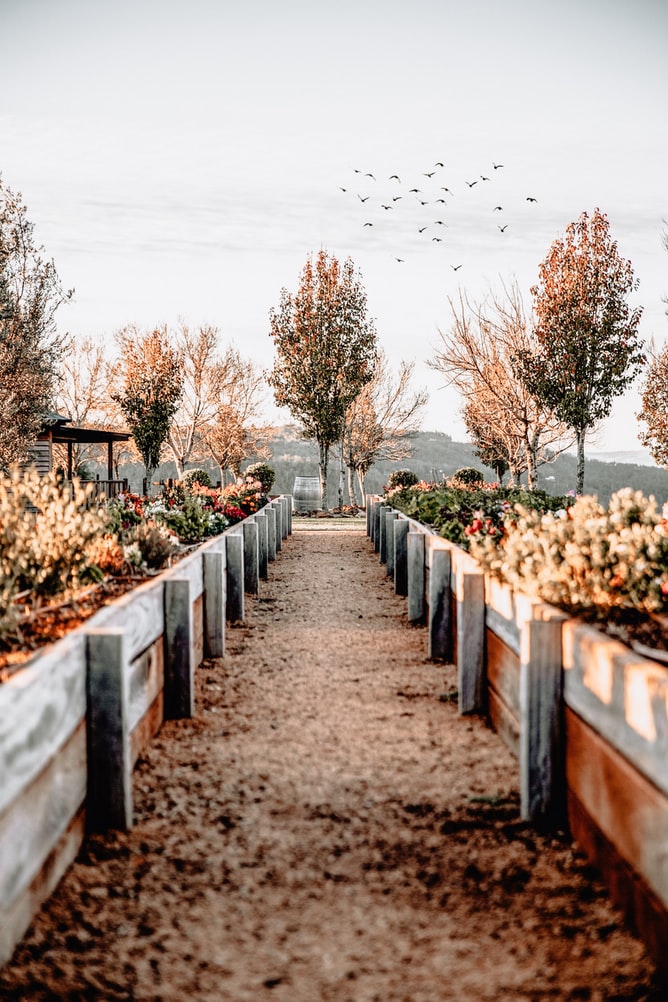Gardens are nature’s perfect teachers, engaging children in organic learning in science, conservation, agriculture, math, and so much more. Getting the family involved with flower or vegetable gardening is not only a fun activity but enriches education using a hands-on approach. It also allows you all to get outside in the fresh air and get some physical activity as well.

Starting Your First Family Garden
A herb or vegetable garden is a fantastic idea for your first garden. Flowers can be more finicky, and many vegetables are hardy and easier to grow in various climates. You can also eat the food that you produce, which provides even more teaching opportunities.
Your first garden can be indoors, outdoors, in the ground, or on raised beds. It will depend on where you live and the soil or space you have available. Even families in apartments might be able to plant a few things indoors or have access to a rooftop or community garden. Be sure to get all the materials a first-time gardener will need; you can find a whole list here on the Top Dreamer blog.
7 Lessons Kids Can Learn From Gardening Activities
Children are naturally curious and learn better by doing than by simply watching or listening. Gardening provides plenty of opportunities for hands-on learning and activities. Here are seven lessons for enrichment through gardening you can work on with your children.
#1. Gardening Teaches Kids Where Our Food Comes From
We’ve become disconnected from our food sources. Being able to pick up foods from all over the world, in-season or not, in pre-packaged meals makes us lose sight of how much work it takes to bring food from the farm to the table. Gardening will teach children from seed to plant what it takes to plan and grow their food. Start early by engaging children in the initial plans to start the garden. What will you grow? How will you raise it? Let them help design the garden layout and even add some decoration with a scarecrow or DIY garden markers for each plant type.
#2. Learning To Follow Directions Using Seed Packets
Having a green thumb is part art and part science. To successfully grow plants, you’ll need to research how your plants grow best and read the directions on the seed packets. An excellent exercise for children when gardening is reading the directions with them and letting them help figure out what order you need to do things in, how far apart to set each seed, and how deep into the ground it should go, how often to water, and more.
#3. Gardening Science Lesson: Plant Life Cycle
Gardening allows you to teach science lessons on the life cycle of the plant up close and personal. From seed to sprout and when to harvest, kids can learn about each phase of growth and make a chart of their plant’s progress. You can get this lesson plan and several more from the Whole Kids Foundation.
#4. Patience and Nurturing Life Lessons From Gardening
We live in an era of instant gratification with lighting-fast access to information and entertainment. A garden is a great lesson in patience since plants do not grow overnight. It is also a valuable opportunity for a child to practice their nurturing skills. You’ll find that many young children are naturally drawn to caring for small, young, or delicate things when given a chance. Learning how long different plants take to grow and predicting when vegetables will be ready for harvesting is a great activity for kids when gardening.
#5. Composting Lesson For Healthy Plants
Composting is another wonderful agricultural science lesson that is a great precursor to chemical compounds and molecular structure. Even these advanced concepts can be introduced at a young age using lessons learned from gardening. Organic materials that you compost break down and become rich soil for feeding growing plants. You can also learn more about a concoction called “compost tea” in this Washington Post article. Even very young children can help compost and reduce food waste by putting kitchen scraps in a compost pail and learning what organic materials belong in a good compost heap.
#6. Garden Journaling For Kids
A hard life lesson that everyone needs to learn is that things don’t always go as planned, and you can’t control everything. In gardening, you can do all the “right” things, and a crop can still fail to grow, or a sudden change in temperature can ruin your plans. An educational way for children to process their feelings about these lessons and document their gardening journey is to keep a journal. If your child is too young to write, they can record their daily thoughts with a phone or tablet app, or they can draw pictures instead of using words. Older kids can write their ideas in a gardening journal. As you can see, there are learning opportunities in all subject matters that can be gained from gardening activities.
#7. A Lesson In Food Waste In America
Food waste in America is at an all-time high of 40%. You read that correctly, of all the food produced each year, 40% of it simply rots instead of being eaten by people or animals. A true appreciation of the effort, resources, and hard work it takes to grow food can only be taught through gardening. If you know first-hand how much work it takes to grow a single zucchini, then you might think twice about letting the food in your fridge go bad.
Food waste activities include things like:
- Meal planning
- Charting food wasted at home
- Researching zero-waste practices
- Cooking lessons to use leftovers or perishables first
When gardening with children, take time to explain each step of the process and let them be hands-on as much as possible. Letting tiny hands help with the work may slow your gardening down, but it creates family bonding, educational enrichment, and happy memories.
Author Bio: Sandra Chiu works as Director at Ladybug & Friends Daycare and Preschool.



